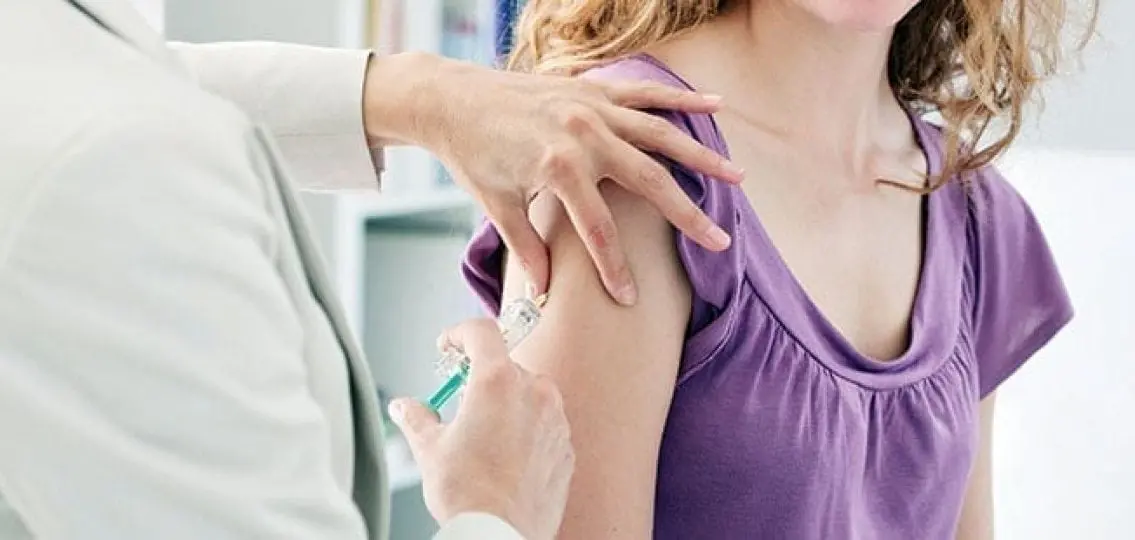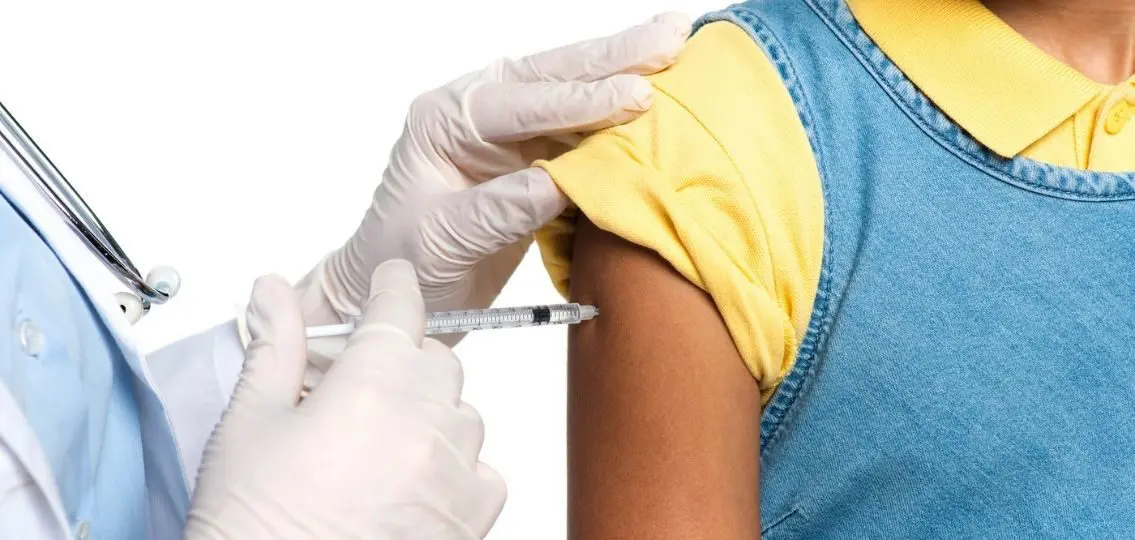Now that children 12 and up are eligible for the COVID-19 vaccine, many parents are jumping for joy. But others are worried about how to get their child to take the vaccine. According to the Meg Foundation for Pain, 50 percent of adolescents and 63 percent of children have a fear of needles.

When my daughter was two, she got sick and needed IV fluids. When she realized what was about to happen, she morphed into the Incredible Hulk. Her father and I had to hold her down while the needle was inserted into her arm. Then she ripped it out. It was not a great day. It also seeded a fear of needles.
It’s typical for a fear of shots to develop when kids are little, says Jody Thomas, a licensed psychologist and executive director of the Meg Foundation. “But where we see major problems arise is as kids get older,” she says.
Nurses are understanding about a 7 or 8 year old being anxious. “But they can actually be very dismissive—and frankly rude—with teenagers and with older kids,” Thomas says. “There’s a shame element that becomes problematic—and not only for that moment. The moment we decide that shame is going to enter the picture, we’ve already lost the battle.”
But you can get your teen in for the vaccine without resorting to a full-body tackle. In fact, Thomas says this is an opportunity for a corrective experience. “Research would say that three positive experiences can undo a lot of the trauma,” she says. “But even one is incredibly powerful.”
That’s good news! Here’s how to make your teen’s next vaccine a good experience.
Your Teen Fears the Needle? Try These Strategies
1. Validate feelings and connect the vaccine to teen lives
Statements like “Don’t be silly about this” and “You’re being irrational” aren’t going to solve the problem. (I don’t know about you but invalidating a teen’s feelings has never gotten me very far.)
A fear of needles is totally normal and a fear that a lot of people have, Thomas says. So tell your teen that. Then add why you need them to get the vaccine anyway using the immediate benefits to them. You’re getting them vaccinated because you want them to be able to get back to friends and school, play softball without a mask on, or whatever else is destined to be weird until they are protected. Finally, connect getting the vaccine to the greater good. By facing their fear of the needle, they are taking care of themselves, their parents, grandparents, the toddler they babysit, and more.
2. Speak up
Many of us become deferential in the presence of medical professionals. But when you’re dealing with a fear of needles, parents need to have a role in how the experience is going to play out.
“Kids are trained to be polite,” Thomas says. “But there are times when the provider isn’t going to do the right thing and kids are not empowered to speak up.”
That’s your cue. If the provider makes a comment about your child being too old to be scared, you can set things straight. “The parent is going to have to take control of that dynamic. ‘No, they’re not 6 years old, they’re 14 and really capable, with a very normal fear of needles.’”
Dealing with a very phobic teen? Call the clinic ahead of time to make a plan that reduces waiting time—and also reduces the amount of time anxiety has to ramp up.
3. Give your teen control
You need to make the decision to get them vaccinated, but beyond that, try to give your teen as much control as possible. Ahead of time, have them pick a reward for after the shot—maybe ice cream or their favorite takeout.
Once you’re at the clinic, ask if they want to fill out the forms themselves or have you do it. Would they like you to sit close to them or hold their hand while you wait? Offering these choices allows your teen to take power in the situation, says Thomas, and that helps them overcome their fear of needles.
4. Offer a distraction
Here’s a tip you won’t often hear: Let them bury themselves in their phones. Yes, in the waiting area. But also literally while they are receiving the shot. Distraction changes our perception of pain. That mysterious bruise on your knee? The reason you have no idea where it came from is because you were distracted by whatever you were doing when it happened.
“Your brain knows how to ignore pain. It does it all the time,” Thomas says. Intentional distraction will help minimize the pain your teen feels. And it doesn’t have to be a phone. A book, jokes, and conversation can all work. Whatever gets your teen’s focus off of the needle.
5. Use touch
Touch is comforting and, much like distraction, your brain can’t really focus on more than one touch at a time. Rub your teen’s hand and arm, sit closely, or even have them sit on your lap. Your touch and calm presence can help them stay grounded and regulated, Thomas says.
If your fearful teen is worried about involuntarily yanking their arm away, you can ask if they would like some help keeping their body and arm still. Then get into a “comfort position” where you are sitting behind them with your arms around them in a hug, helping their arm stay in position. This is not about restraint, Thomas says. Touch is very powerful in helping to regulate our bodies. Your breathing and pulse may begin to mirror each other’s. And you can verbalize what’s going on, asking them if they can feel you hugging them and breathing with them.
What if you’re in an open space with lots of people who can see you wrapped around your giant teen? Show your teen that you don’t care what other people think, you’re going to hug them anyway. “It’s such a great modeling for a kid,” Thomas says.
6. Don’t say “It’s okay”
Much like telling someone to “calm down,” it just doesn’t work to minimize your teen’s feelings. Instead, reinforce what touch is happening and distract by talking about what’s coming next. “I’m holding your hand, can you feel that? And then in a few minutes we’re going to get coffee. I think I might get something cold. What are you going to order again?”
7. Talk about the side effects
At this point, it’s likely teens have heard of or seen someone suffer uncomfortable side effects of the COVID-19 vaccine. If that’s causing worry, use it as an opportunity to do some critical thinking and research together. Check out what the CDC says about the prevalence of those symptoms and the benefits of getting vaccinated.

“One of my root things is never lie,” Thomas says. Your teen is right—they could feel sick. Remind them that this is a sign that their immune system is working, they’ll probably get out of doing any chores, and that the discomfort will be short-lived. “And then, after that,” Thomas says, “we get all the good stuff.”




